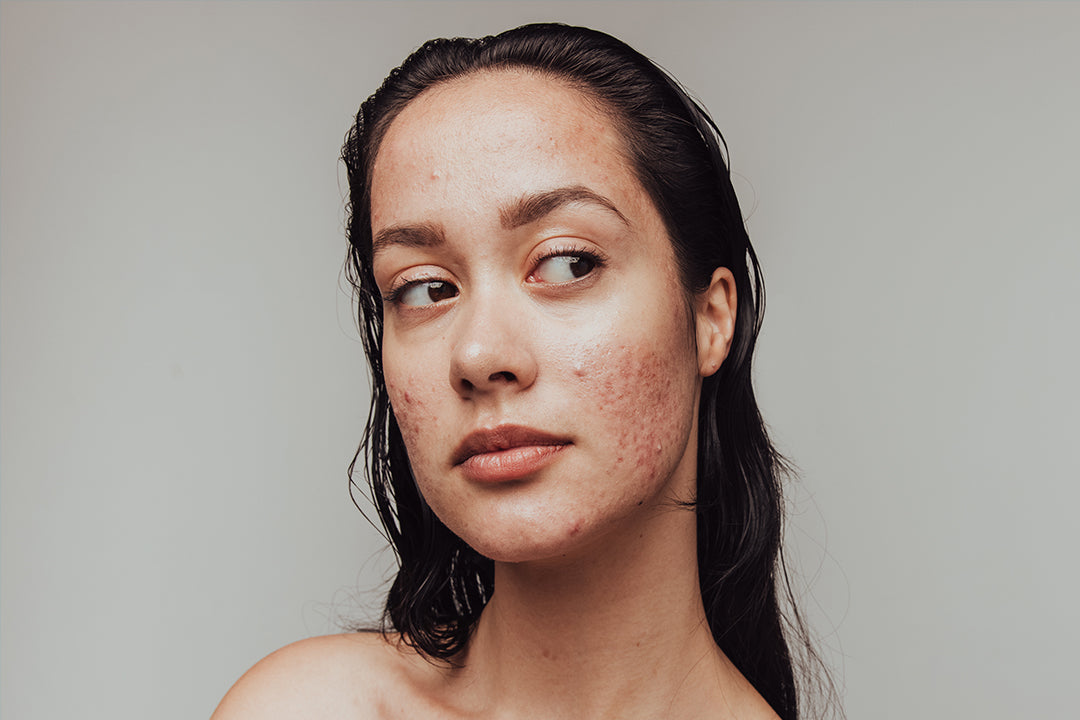Acne is often thought of as a problem that affects only teenagers. However, this is a common misconception. Many adults struggle with acne well into their 30s, 40s, and even 50s. In this post, we’ll debunk the myth that acne is only a teenage issue and explore the causes and treatments for adult acne.
The Myth: Acne is Only a Teenage Problem
Why This Myth Exists: The myth that acne is only a teenage issue likely stems from the fact that acne is most prevalent during puberty. Hormonal changes during adolescence often lead to increased oil production, clogged pores, and breakouts. However, acne doesn’t necessarily end with the teenage years.
The Reality: Acne Can Affect Adults Too
Statistics and Facts:
- According to the American Academy of Dermatology, adult acne affects up to 15% of women and 7% of men.
- The American Academy of Dermatology found that adult acne is more common in women than men, often due to hormonal fluctuations.
Causes of Adult Acne
Hormonal Changes:
-
-
Hormonal fluctuations are a major cause of adult acne, particularly in women. These can occur during menstrual cycles, pregnancy, perimenopause, and menopause.
-
-
Stress:
-
Stress increases the production of cortisol, a hormone that can stimulate oil glands and lead to breakouts.
-
Diet:
-
Certain foods, particularly those high in sugar and dairy, can trigger acne in some individuals. It’s important to observe how your skin reacts to different foods.
-
Skin Care Products:
-
Using products that are too harsh or not suitable for your skin type can cause irritation and acne. Non-comedogenic products are less likely to clog pores.
-
Medications:
-
Some medications, including corticosteroids, anabolic steroids, and lithium, can cause acne as a side effect.
Debunking Common Myths About Adult Acne
Myth: Only Teenagers Get Acne
-
-
Fact: Acne can affect individuals at any age. Adult acne is a real and common issue.
-
-
Myth: Poor Hygiene Causes Acne
-
Fact: Acne is not caused by dirt. In fact, over-washing your face can strip the skin of its natural oils and worsen acne.
-
Myth: Tanning Clears Up Acne
-
Fact: While a tan may temporarily mask redness, UV exposure can lead to skin damage and worsen acne over time.
-
Myth: Popping Pimples Helps Them Heal Faster
-
Fact: Popping pimples can lead to scarring and infection. It’s best to leave acne treatment to skincare products and professional dermatological advice.
Effective Treatments for Adult Acne
Topical Treatments:
- Glycolic/Salicylic Acid 10/2 Acne Control Pads: Glycolic/Salicylic Acid 10/2 Acne Control Pads help to unclog pores and moisturize skin, making them an excellent choice for managing acne.
- 5% Niacinamide + Retinol Serum: QRxLabs 5% Niacinamide + Retinol Serum promotes cell turnover and prevents clogged pores, reducing the appearance of fine lines and acne.
- Body Acne Spray: With its powerful and effective formula, the QRxLabs Body Acne Spray immediately penetrates deep into the pores to cleanse and effectively remove acne-causing bacteria responsible for scarring, redness and irritation. This formula will minimize new pimples and reduce inflammation through safe ingredients that help protect the skin and prevent painful breakouts.
Oral Medications:
- Antibiotics: Help to reduce inflammation and bacteria.
- Hormonal Treatments: Birth control pills or anti-androgen medications can be effective for women with hormonal acne.
Lifestyle Changes:
- Healthy Diet: Reducing sugar and dairy intake can help manage acne for some people.
- Stress Management: Practices like yoga, meditation, and regular exercise can help lower stress levels.
Acne is not just a teenage issue. Understanding the causes and treatments of adult acne can help you manage and reduce breakouts effectively. If you’re struggling with persistent acne, consider consulting a dermatologist to find the best treatment plan for your skin. Incorporating QRxLabs products into your routine can also help you achieve clearer, healthier skin.


